Policy implemented for 3 decades
Since 1995, the land allocation policy in agricultural companies has been considered an important step to innovate land management and reorganize agricultural production. The land allocation policy has brought about many positive changes. People have received land, have stable working conditions, many households have escaped poverty, and their lives have improved significantly. Thanks to land allocation, many localities have formed agricultural and forestry production models according to the value chain, helping agricultural products have stable output, creating more jobs and maintaining security and order in rural areas.
Mr. Nguyen Van Tien - Vice President of the Vietnam Association of Agricultural Economics and Rural Development - said that currently, agricultural companies are contracting land in two forms: agricultural land and garden contracting. Surveyed in 4 provinces, the average total income of a contracted household is 299 million VND/household/year; of which the income from contracting agricultural companies is 192 million VND/year, the income from other agricultural activities is 85 million VND/year, and the income from other industries is 21 million VND/year.
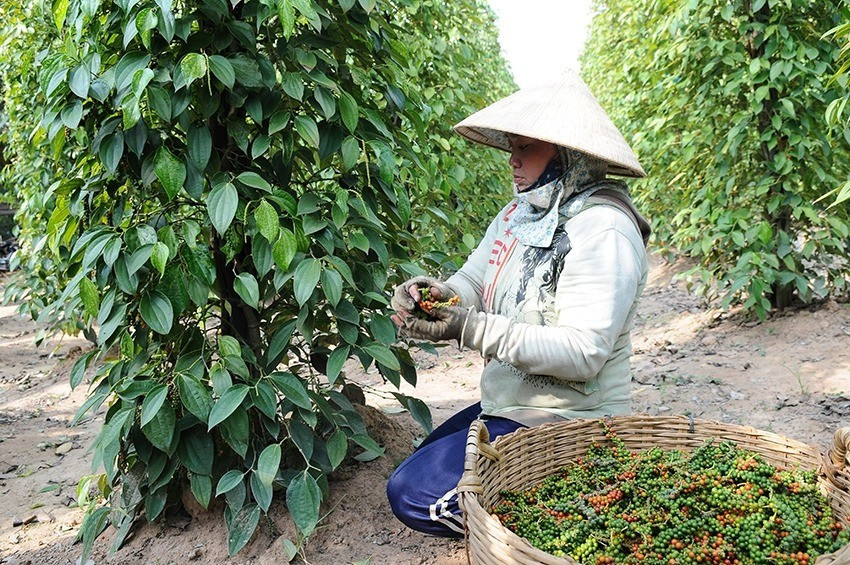
However, after nearly three decades, many problems have arisen, showing that the land contract policy needs to be reviewed and adjusted to suit the current development context.
Mr. Nguyen Hong Son - Department of Planning and Finance, Ministry of Agriculture and Environment - said: "Currently, the whole country has 126 agricultural companies arranged and innovated according to Decree 118/2014/ND-CP, managing about 478,000 hectares of land. Of this, about 113,870 hectares are allocated land, but more than 34,000 hectares are still encroached, disputed or not yet put into use. In particular, about 17,000 hectares still apply the old management mechanism according to Decree 01/CP from 1995, causing overlaps in management and implementation".
Mr. Phung Giang Hai - Institute of Strategy, Policy on Agriculture and Environment - said: "The current land contract policy is clearly revealing many shortcomings. The legal framework lacks specificity and consistency between the forms of contract, lease or land contribution. Meanwhile, the contract recipients are not fully guaranteed rights such as transfer, mortgage or inheritance, making them afraid to invest long-term. This causes many areas to be abandoned, used ineffectively, and even gives rise to long-term disputes."
A series of painful cases
One of the current prominent issues is the misuse of contracted land. According to the Vietnam Rubber Industry Group, the biggest problem the group is facing is the application of regulations allowing contracted households to build temporary shelters, barns, wells, drying yards, etc. to serve production.
However, over time, many households have arbitrarily expanded the scale of land use, even built houses, permanent service works, transferred contracts or freely bought and sold land use rights illegally. This situation is common, especially in areas along national highways, provincial roads, near industrial parks - where land values increase, making management very difficult.
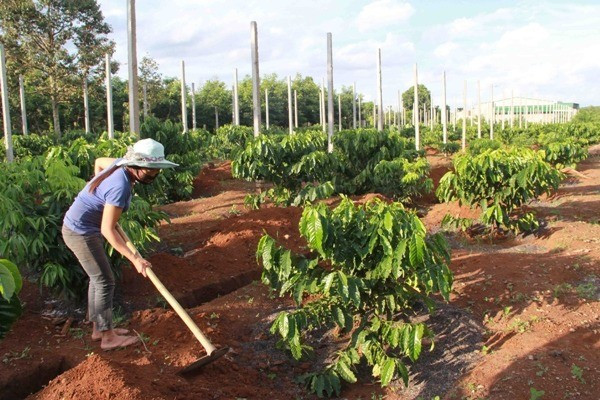
Vietnam National Coffee Corporation (Vinacafe) also reported many difficulties in land contracting procedures. Most member companies had to carry out the contracting themselves while lacking guidance from the authorities. On-site technical staff were weak, and measurements and documentation were incomplete, leading to disputes between contracting households.
Many localities have not yet coordinated closely with businesses to handle encroachment and illegal construction. In some places, coffee land has become infertile, the trees are old, and productivity is low, while input costs are increasing. People who want to replant and invest also face difficulties, especially when accessing preferential loans is not easy...
Many disputes in agricultural land allocation have been brought to trial for a long time. Most recently, in April, the Dak Lak Provincial People's Court conducted a public appeal trial of a civil case on "disputes over land allocation contracts and claims for compensation for property damage".
The incident occurred when Ms. T. received the land contract but did not fulfill the obligation to take care of the garden according to the company's regulations, arbitrarily converting from coffee trees to other crops. Therefore, Ms. T. was required to compensate for property damage, hand over the unfulfilled coffee output and was required to return the land to the contract company.
Proposing mechanisms and policies to remove the bottleneck of contracting in agricultural companies, Dr. Ha Cong Tuan - former Permanent Deputy Minister of Agriculture and Rural Development, Chairman of the Vietnam Association of Agricultural Economics and Rural Development - said that to solve the immediate and long-term problems, policies must pay attention to the people, after the reform, must ensure the lives and increase the income of the people.
After the two-level government arrangement, it is necessary to resolutely implement Conclusion No. 103-KL/TW dated December 2, 2024 of the Politburo on continuing to implement Resolution No. 30-NQ/TW dated March 12, 2014 of the Politburo on continuing to arrange, innovate and develop, and improve the operational efficiency of agricultural and forestry companies.
If the company is not able to achieve the goals according to Resolution 30, it can be dissolved and transformed in accordance with the law, planning, and putting the interests of the people first. At the same time, research to transform the model from households, individuals, contracted workers, contracted workers, contracted individuals to shareholders and workers in agricultural companies...

Searching for forest land 135 to become 'officials' gardens'

Experts talk about the proposal to trade real estate online like stocks
Source: https://tienphong.vn/nhuc-nhoi-nan-tranh-chap-lan-chiem-khi-giao-khoan-dat-cho-doanh-nghiep-post1763508.tpo


![[Photo] The road connecting Dong Nai with Ho Chi Minh City is still unfinished after 5 years of construction.](https://vphoto.vietnam.vn/thumb/1200x675/vietnam/resource/IMAGE/2025/11/04/1762241675985_ndo_br_dji-20251104104418-0635-d-resize-1295-jpg.webp)

![[Photo] Ho Chi Minh City Youth Take Action for a Cleaner Environment](https://vphoto.vietnam.vn/thumb/1200x675/vietnam/resource/IMAGE/2025/11/04/1762233574890_550816358-1108586934787014-6430522970717297480-n-1-jpg.webp)
![[Photo] Panorama of the Patriotic Emulation Congress of Nhan Dan Newspaper for the period 2025-2030](https://vphoto.vietnam.vn/thumb/1200x675/vietnam/resource/IMAGE/2025/11/04/1762252775462_ndo_br_dhthiduayeuncbaond-6125-jpg.webp)
![[Photo] Ca Mau "struggling" to cope with the highest tide of the year, forecast to exceed alert level 3](https://vphoto.vietnam.vn/thumb/1200x675/vietnam/resource/IMAGE/2025/11/04/1762235371445_ndo_br_trieu-cuong-2-6486-jpg.webp)

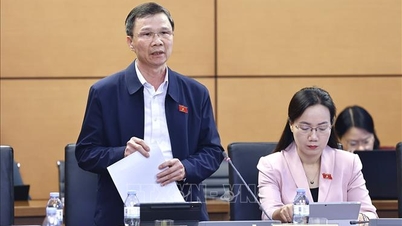

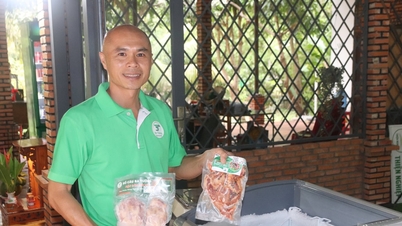



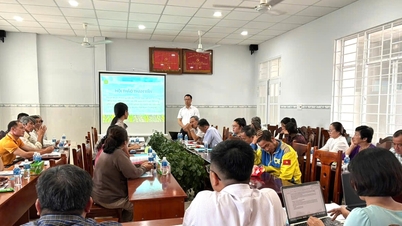
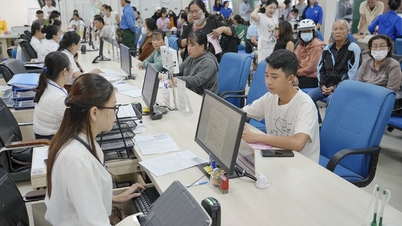



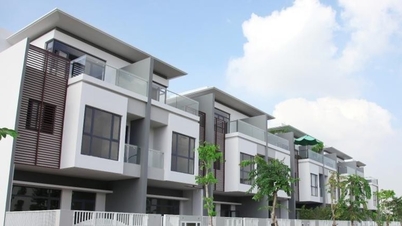





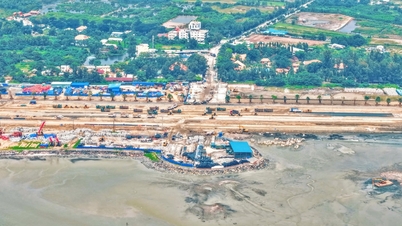
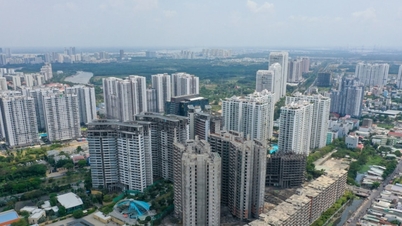



































































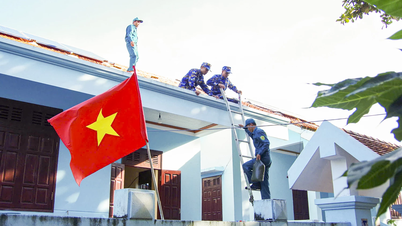















Comment (0)